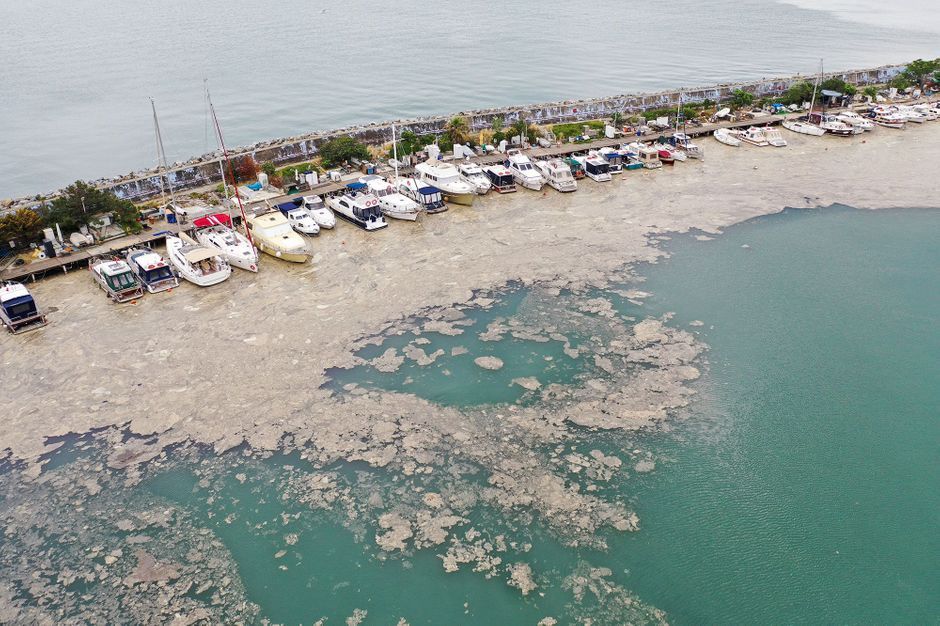
Sea mucus invades the coast of Turkey
For several weeks, the northwestern coast of Turkey has been subjected to an invasion of “sea mucus” under the influence of pollution and global warming.
Sticky foam has invaded the coast of northwestern Turkey for several weeks under the influence of pollution and global warming, a phenomenon that worries environmentalists. Mucilage, sometimes called “sea mucus”, appears when plant organisms that live in a suspended state in water swell to form a type of yellowish mucus that covers large areas of the sea. In addition to disturbing the inhabitants and fishermen, the mucilage poses above all a danger to the ecosystem by specifically blocking sunlight and depriving the underwater plants and animals of oxygen.
Sheets of gum have doubled in recent weeks in the Sea of Marmara, including in Istanbul, Turkey’s economic capital. This natural phenomenon was first recorded in Turkey in 2007. But the current invasion is the largest to date. According to experts, this is due to pollution and high temperatures, which enhance the spread of plant matter in its origin.
saliva alarm in parliament; “If the Sea of Marmara dies, the Black Sea will die after it.”https://t.co/Pe5nXgjjqApic.twitter.com/1WPamOvzNp
– T24 (@t24comtr) June 4, 2021
“The gum covers the surface of the sea like a plate. After a while, it sinks into the water and covers” the marine ecosystem, poisoning mollusks and crustaceans, Muharram told AFP, a professor of biology at Istanbul University. He asserts that “if this process is not stopped, the smell of a rotten egg will soon appear.”
Also in the depths
The infestation of gum could continue all summer long if urgent measures are not taken, warns Cevahir Ev Akcilik, environmental engineer and general secretary of the Federation of Chambers of Engineers and Architects of Turkey. “Studies indicate that the gum is no longer only on the surface, but also at depths of 25-30 metres,” he told AFP. The Sea of Marmara, which stretches from Istanbul to the Aegean Sea, is bordered by areas that are among the most densely populated, industrialized, and polluted in Turkey.
The problem is exacerbated by the significant pollution of the Danube, a river that flows into the Black Sea, which connects the Marmara River with the Bosphorus. The Turkish authorities have deployed fishing vessels to drain the viscous material, but experts believe that these means are insufficient. For Mr Balci, it will be particularly essential that coastal cities coordinate their actions and that materials that factories release into the sea are better handled.
Any cloning is prohibited

“Unapologetic pop culture trailblazer. Freelance troublemaker. Food guru. Alcohol fanatic. Gamer. Explorer. Thinker.”
